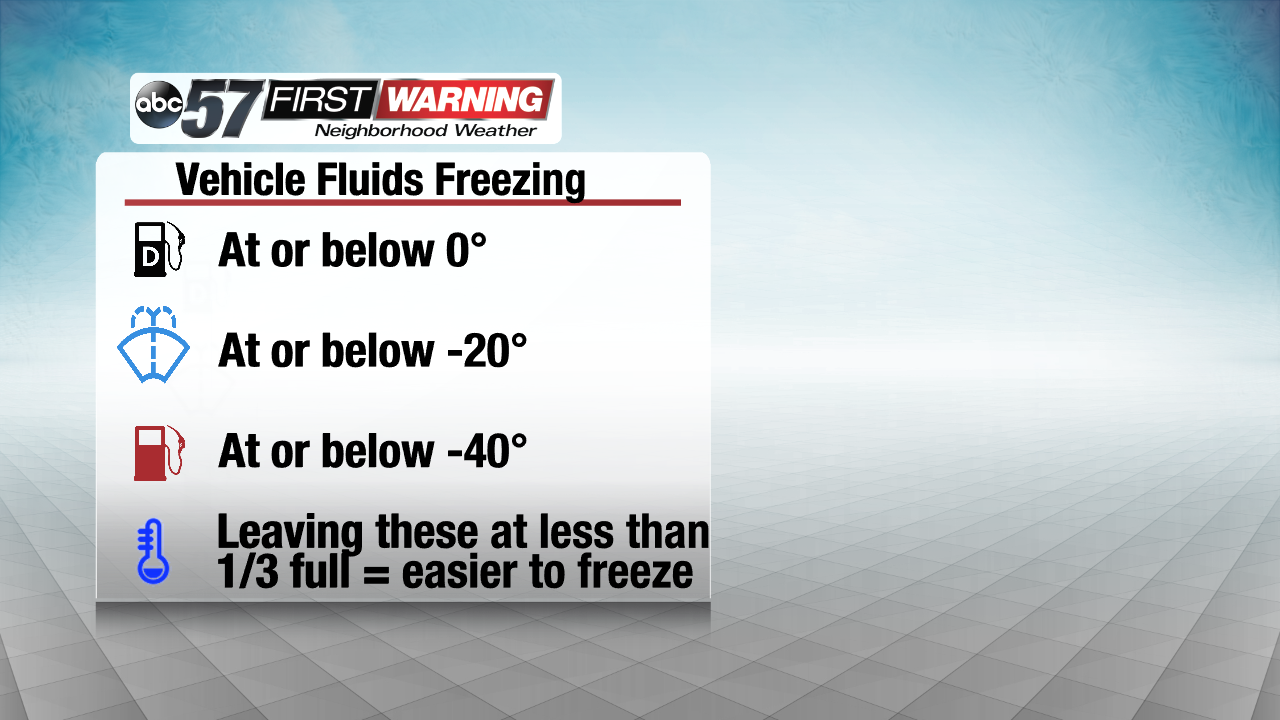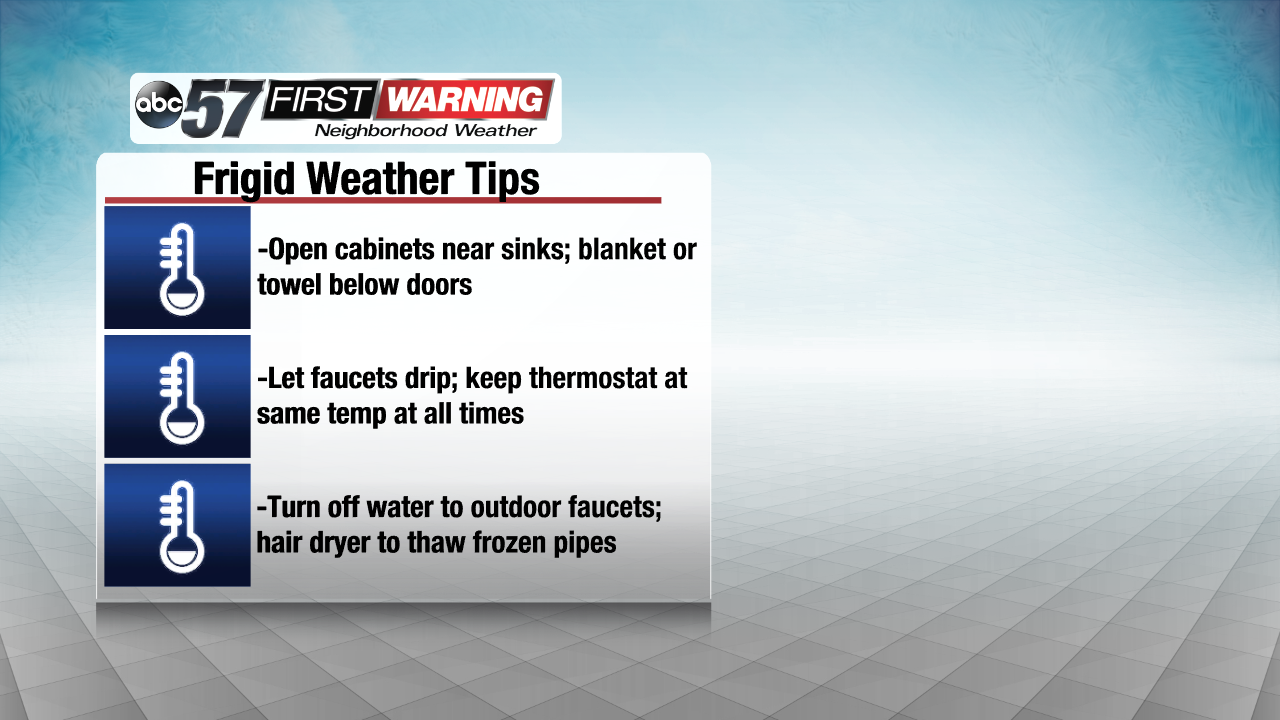Frigid air can affect vehicles and homes
The much-discussed frigid air mass has arrived, and it is going absolutely nowhere over the next 10-14 days, if not longer. This cold snap is set to be like one we haven't seen in years. Temperatures won't reach 20° until several days into 2018. And, with this arctic air in place, there are numerous things to consider, ranging from personal safety to vehicle and home safety. Your vehicle functions optimally at milder temperatures. When the mercury drops to the single digits and below zero, things may start to go wrong. That means you need to keep an eye on gasoline, windshield wiper fluid, tire pressure, batteries, and oil. While we won't reach the extreme temperatures required to completely freeze windshield wiper fluid and gasoline, we will be cold enough that leaving your tank at or below 1/3 could cause issues. Not only could your gasoline freeze when left at low levels, but other issues could potentially arise. In other words, keep your gas tank, windshield wiper fluid and oil fresh and full to the best of your abilities.
Your home can also be affected by frigid temperatures. Freezing pipes is one of the biggest concerns for homes, apartments and other buildings. To help avoid this, try opening cabinets that surround sinks to help warmer air flow by the pipes underneath the sink. If your pipes do freeze, try using electrical heat tape, a hair dryer or space heater to thaw them safely. The American Red Cross lays out guidelines for frozen pipes, what to do about them, and ways to avoid them.
Other than frozen pipes, there are a few other things to consider when it gets this cold. Putting blankets or towels at the bottom of doors can help prevent drafts. Covering windows with heavy plastic or drapes can help keep the cold out. Letting one or two faucets drip can help prevent pipe issues. If you haven't yet, consider closing inside valves that supply outdoor hose bibs. Open those outside hose bibs to allow any remaining water to drain. Also, keep the outside valve open so any water stuck in the pipe can expand without causing a breakage.
When venturing out into the cold, avoid prolonged exposure, bundle up, dress in layers, and be aware that frostbite and hypothermia can happen in a shorter period of time than normal. Avoid wearing cotton if you plan on being outside for extensive periods of time because cotton does not dry effectively. Mittens are excellent for keeping your hands warm; they do a better job than most gloves do. If chapped skin or lips become an issue, apply moisturizing lotion or ointment, and try to protect those areas of skin from the wind and cold. For example, chapped hands can be cured faster if you apply moisturizing lotion or ointment, and put socks over them while you sleep at night.
In short, remember that extreme cold can be harmful to you, your vehicle and your home. Take steps to avoid potentially costly outcomes. This cold stretch is likely to last through mid-January, so it's not too early to take some of these precautions.















